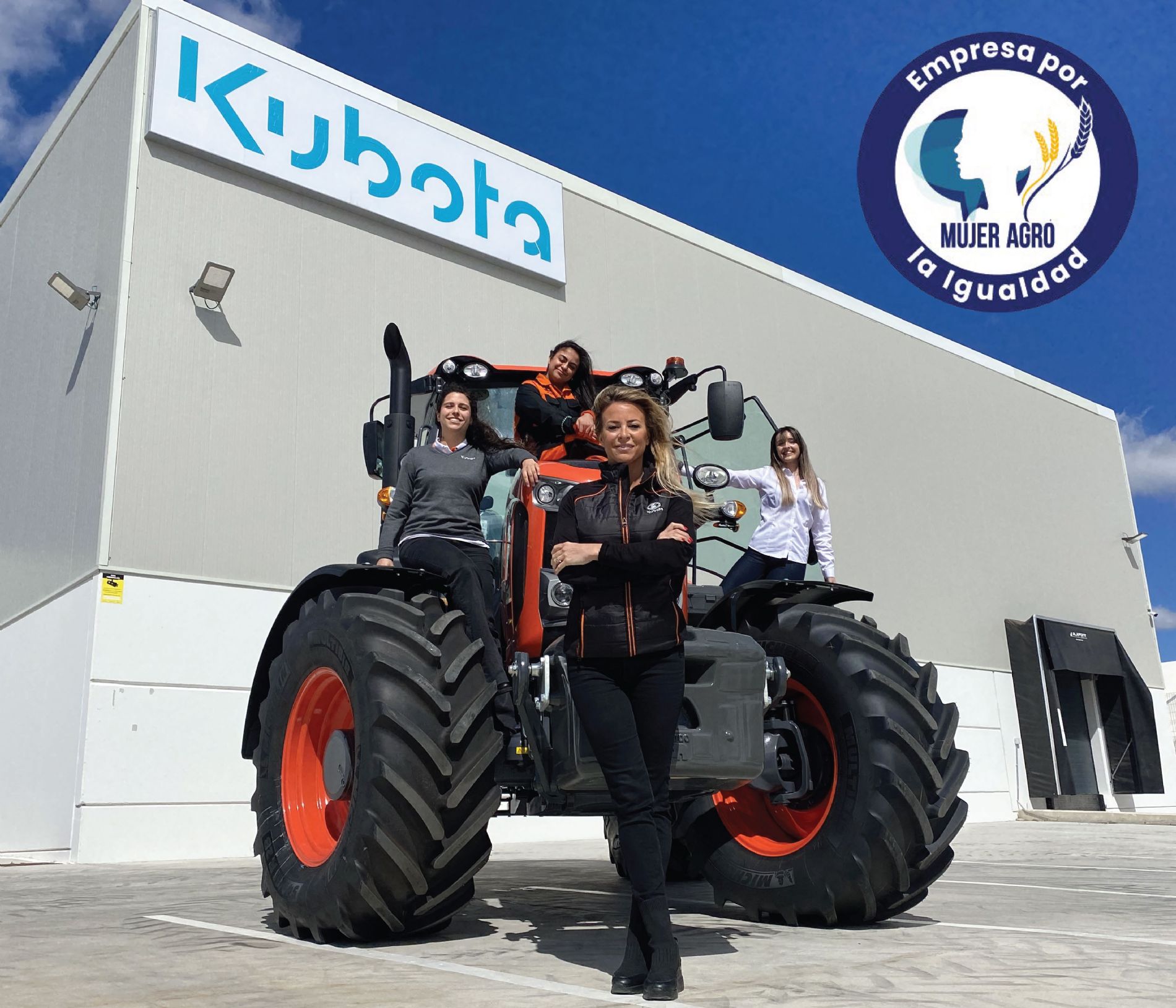
Kubota considers the recognition of diverse values and ways of thinking with multiple viewpoints essential to its sustainable growth. To promote diversity in the workforce, the multinational has so far worked to promote women within its organization, actively striving to increase the number of new female hires, improve the work environment to encourage women to continue working, and create more opportunities for women's personal development.
On October 31, the International Month of Women in Agriculture, Siete Agromarketing, a leading communication and marketing agency in the agri-food sector, and eComercio Agrario, a national and international political and economic information newspaper in the agri-food sector, awarded Kubota the MujerAGRO Equality Company seal. This seal Company for Equality - MujerAGRO is linked to a series of decisions and bets of the corporations within the actions of Corporate Social Responsibility (CSR).
They, who work in favor of achieving a greater quota of representation and prominence for women, as the main challenge that this group still has to face within the agri-food sector. A group that constitutes a fundamental pillar for the development and future of the agri-food activity and the entire value chain.
In this sense, the achievement of equal opportunities in the rural world and the agri-food sector requires that companies and their managers get involved in this challenge, together with the need for a real incorporation of women to make their activity visible in a sector in which the presence of the female sector and work in parity is increasing.
According to Patricia González, Sales and Marketing Director at Kubota Spain, "The role of women within Kubota is necessary. As in all areas and sectors of our society, the participation of women is absolutely necessary. In general, the emotional approach, tenacity and closeness that we offer to our Dealers and Customers is one of our greatest virtues and we put it into practice on a daily basis. In all departments of our company there are women and men. As a team, there is a connection and camaraderie that is not experienced everywhere, unfortunately."
From Kubota's point of view, it is critical to the sustainable growth of the organization to recognize different values and ways of thinking and to encourage different perspectives. Increasing the number of women hired, creating an environment in which women can continue to work in the midst of various events in their lives, and creating opportunities for women to develop as professionals.
To help women prolong their careers, Kubota believes that men should also devote themselves to housework and childcare, so it proactively encourages male employees to apply for childcare leave.
"At Kubota I have never experienced the difference between men and women in any case. Here what is valued is the passion with which you work and the achievement of goals. At Kubota, we employees are paid on a grade basis; two employees of different age or sex and having the same grade earn the same. In that sense, there has always been parity, and it is not a strategic plan that the company has established, but rather they are basic lines of Kubota and The Company in Spain and Europe", emphasized Patricia González.
The Women's Empowerment Principles (WEPs) are the principles of action formulated jointly by the United Nations Global Compact and UN Women (United Nation Woman) in March 2010 to promote the improvement of the working and social environment, so that the power of women is put to positive value in business activities.
An advocate of the EMPs, the Kubota Group signed them in July 2012, thus declaring that it places gender equality and women's empowerment at the center of its corporate management and takes proactive measures accordingly.
"In the last decade, the management and leadership of agricultural and livestock farms by women has increased from 8% to 22%. This means that, if the progression continues as it has been, in another 10 years we will be able to reach parity," concluded Patricia González.
